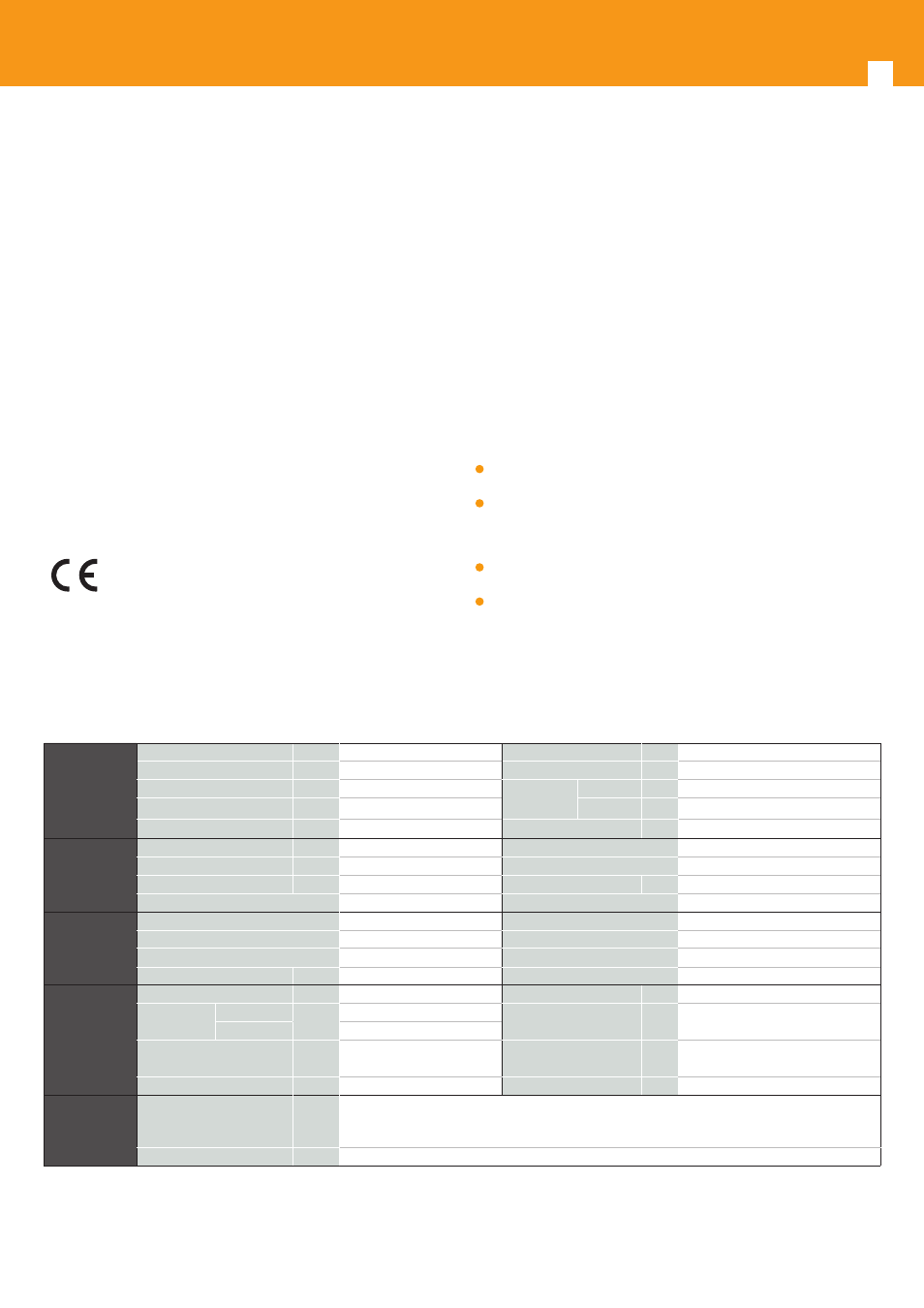Important safety instructions, Inputs/outputs/connections description, Introduction – Televes T.0X DVB/T2-COFDM CI TWIN MUX 2Ch-2Ch User Manual
Page 6: Technical specifications, General installation conditions

MUX DVBS2 - QAM/COFDM CI Twin
6
Important safety instructions
General installation conditions
• Before handling or connecting the equipment, please read this
manual.
• In order to reduce the risk of fire or electric shock, do not expose the
equipment to rain or moisture.
• Do not take the cover off the equipment without disconnecting it
from the mains.
• Do not obstruct the equipment’s ventilation system.
• Please allow air circulation around the equipment.
• The equipment must not come into contact with water or even be
splashed by liquids. Do not place containers with water on or near the
equipment if it is not adequately protected.
• Do not place the equipment near sources of heat or in excessively
moisture conditions.
• Do not place the equipment where it may be affected by strong
vibrations or knocks.
• This symbol indicates that the equipment complies with
the requirements of CE mark.
Inputs/Outputs/Connections description
The unit (Fig. 1) is provided with:
1. DVB-T / DVB-T2 input
2. DVB-T / DVB-T2 output
3. RF input
4. RF output
5. Module power supply input
6. Status LED
7. Control BUS connector
8. Slot CAM
9. Programmer / PC connector
Introduction
The multiplexer can demodulate up to two DVBT or DVBT2 signals from the
input.
The user selects which services will be transmodulated in each of the two
available output channels. Two transport stream are created, which are then
modulated in QAM (565201) or COFDM (565101) format and converted to
their respective output channels using an agile up-converter.
A Common Interface slot is available. A conditional access module (CAM) can
be inserted to descramble output services.
To configure the multiplexer operating parameters (input frequency, output
channels, modulation formats and adaptation of services) the universal
programming unit (ref. 7234) or the TSuite software can be used.
Technical specifications
DVB-T / DVB-T2
Input
Input frequency
MHz
150 - 862
Input level
dBm
-60 to -20
Frequency steps
kHz
125, 166 (selectable)
Through losses (typ.)
dB
< 1.5
IN/OUT connectors
type
“F” female
Bandwidth
DVB-T
MHz
6, 7, 8
Input impedance
ohm
75
DVB-T2
MHz
1.7, 5, 6, 7, 8
Pre-amplifiers powering
V
0, 12, 24 (selectable)
Return losses (min.)
dB
10
QAM modulator
(Ref. 565201)
Modulation format
QAM
16, 32, 64, 128, 256
Scrambling
DVB ET300429
Symbol rate
Mbaud
1 - 7.2 (selectable)
Interleaving
DVB ET300429
Roll-off factor
%
15
Bandwidth (max.)
MHz
8.3
Block code
Reed Solomon (188, 204)
Spectral inversion (selectable)
Normal / Inverted
COFDM
modulator
(Ref. 565101)
Modulation format
QPSK, 16QAM, 64QAM
Scrambling
DVB ET300744
Guard interval
1/4, 1/8, 1/16, 1/32
Interleaving
DVB ET300744
FEC
1/2, 2/3, 3/4, 5/6, 7/8
Cell_id
Selectable
Bandwidth
MHz
7.8
Spectral inversion (selectable)
Normal / Inverted
RF output
Output frequency (selectable)
MHz
46 - 862
Through losses (typ.)
dB
< 1.5
Frequency
steps
565201
kHz
250
Return losses (typ.)
dB
> 12
565101
166 - 125 (selectable)
Max. output level
dBµV
80 ±5
IN/OUT connectors
type
“F” female
Attenuation (selectable)
dB
> 15
Output impedance
ohm
75
General
Consumptions @ 24Vdc
(with signal)*
mA
450 (not pre-ampl. powered / CAM not inserted)
550 (not pre-ampl. powered / CAM inserted)
600 (pre-ampl. powered / CAM inserted)
Protection level
IP
20
* Power consumption is measured with input signal.
The power consumption indicated for CAM and LNB are highest; in any case, depend on the type of CAM and LNB for each facility.
The technical specifications are defined for an ambient temperature of 45 ° C (113 ° F). For higher temperatures forced ventilation will be used.
